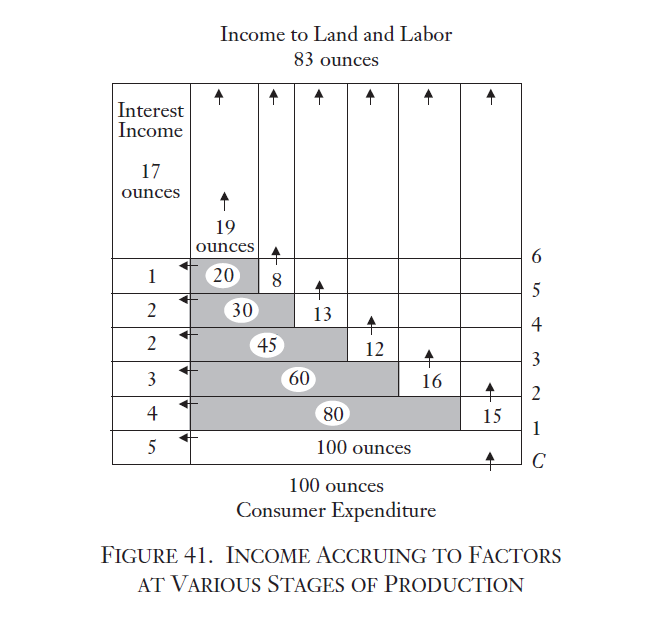In August of 1963, Human Events published an article written by Howard Buffett entitled “’Thou Shalt Not Steal!’ But Government Confiscation Has Been Legalized.”
Topics:
Trevor Daher considers the following as important: 6b) Mises.org, Featured, newsletter
This could be interesting, too:
Nachrichten Ticker - www.finanzen.ch writes Die Performance der Kryptowährungen in KW 9: Das hat sich bei Bitcoin, Ether & Co. getan
Nachrichten Ticker - www.finanzen.ch writes Wer verbirgt sich hinter der Ethereum-Technologie?
Martin Hartmann writes Eine Analyse nach den Lehren von Milton Friedman
Marc Chandler writes March 2025 Monthly
 In August of 1963, Human Events published an article written by Howard Buffett entitled “’Thou Shalt Not Steal!’ But Government Confiscation Has Been Legalized.”1
In August of 1963, Human Events published an article written by Howard Buffett entitled “’Thou Shalt Not Steal!’ But Government Confiscation Has Been Legalized.”1
Buffett began it with satire, suggesting that the Seventh Commandment (eighth in some religions) had become obsolete. Indeed, throughout history, he said, the commandment had “always been a thorn in the side of many people, both great and small.” The strong and the powerful saw it as an “unwarranted restraint on their superior ability” while the weak and the poor saw it as a rule contrived “to keep them from getting even” with their betters.
Buffett treated his readers to a historical survey of alternatives, revisions, and substitutes for the commandment that had been tried and practiced throughout the ages. One such substitute, a perennial favorite among thieves, is “Thou shalt not steal if you are likely to get caught.” Buffett joked that this alternative commandment seemed practical and had always enjoyed some popularity. Nevertheless, it had always failed to garner general acceptance.
Another revision to the commandment which had been tried at various times, and in various places, was “Thou shalt not steal unless you need what you steal, more than the person you steal it from.” This form of the commandment was particularly alluring, because it enjoyed the “flavor of logic and the spirit of compassion.” Perhaps for this reason, Buffett remarked, this variant had been a longstanding favorite among “amoral intellectuals.” It could beguile the thief, and others, into believing that the sin of theft was a virtue; plunder, a righteous cause. Surely, these thieves, Buffett said, would eagerly ally themselves with the doctrine of “from each according to his ability, to each according to his needs.”
The most common practice, though, “the method most used in violating the Eighth Commandment (Seventh in some religions) has been the practice of ‘might makes right.’” Buffett acknowledged that “This method has some serious disadvantages. When used by an individual, not only his victims, but the government as well, offer vigorous resistance.” In other words, private theft—that is private citizens stealing from other private citizens—is constrained by opposition from both the victims and the government.
Which means remain, then, at the disposal of the thief? Taxation, Buffett called it “public stealing” or seizure, was a viable alternative. For in the case of taxation, in contrast to private theft, Buffett noted that “the guns are all on one side….If you doubt that, try refusing to pay the income tax. Ultimately, a man with a gun will take you to jail.” But taxation, too, suffers from drawbacks and inefficiencies. To Buffett, the force employed in extracting tax revenues—in separating individuals from the fruits of their labors—was “painfully obvious.” “Besides, it contains so much injustice that it is under continuous resistance.” This is a drawback. Another inefficiency, Buffett noted, is that taxpayers, especially under heavy burdens of taxation, tend to “become discouraged.” They thereby diminish the tax revenue by way of curtailing their own earnings and productive activities.
So, a new challenge beset the thief: he had to “devise new ways to separate the producer from the fruits of his work.” But, “It must be done in a way that is not an obvious violation of the moral law.” A more discrete and efficient method of fleecing the people would be required. It was for this purpose, Buffett told, that inflation was called into service. For with inflation, the earnings and savings of individuals could be taken from them without ever the threat of violence, nor the need for demanding payment. He continued, inflation “has been used to gull the unwary. But stealing by relentlessly increasing the quantity of irredeemable currency and credit is a type of fraud that ultimately runs out of victims.” Eventually, individuals get wise to the scheme, “and then the game is up.”
Buffett acknowledged, then, that both taxation and inflation have effective limits—what he called the “limits of endurance.” But, then, this question surely must present itself to the thief: How, then, are all of these sheep to be shorn? Buffett had the answer. They must set about “to improve the ‘image’” of thievery. Of late, Buffett said, they had created “a modern version of the age-old scheme of property confiscation – bribing the masses with plunder confiscated from the producers.” He continued, “It was not proposed that the Eighth Commandment be abolished outright. That would offend the religious rote of too many Americans. Instead, the Eighth Commandment would receive lip service while its clear import would be perverted by an unspoken qualifying phrase: ‘Thou shalt not steal – except by majority vote.’” Thieves could advocate theft, and do so tastefully, by “dressing it up in the robes of brotherhood and morality.”
With this democratic instrument, then, it became legal to take from some and give to others. Buffett called it “legal robbery” and “legal plundering.” He reminded his readers that “all this legal robbery was preceded by the passage of laws – enabling acts, which were proclaimed as majority decisions of the American people.” Buffett added his political analysis, “the political bosses of both parties hailed this policy slyly….The expansion of federal activities gave them more money, power and patronage.”
Buffett turned his critical eye, next, toward the clergy and the churchmen. He said, “The party bosses soon had pulling with them in double harness the national leaders of most major religious bodies in America. The Robin Hood ‘help the poor’ window-dressing of the legislation was apparently too attractive for church hierarchies to resist.” The support of the clergy and the churchmen, in turn, obliged many conservatives—who otherwise might have resisted this “plundering of individual earnings for dozens of schemes”—to offer their own support for it.
Buffett’s conclusion, in his own words:
And so the Commandment, “Thou Shalt Not Steal,” has been shunted aside, a victim of obsolescence. After all, it always was and is an extremist posture, apparently out of place in a society where moderates are in charge. The Giver of the Commandments declared, Thou shalt not steal.” The present-day moderates say, “How much of what you earn belongs to me?”
The result is a wonder to behold. Visualize it, if you will. The ne’er-do-well enjoys life on dollars taken from your thrifty pocketbook by the government. The federal tax collector is not like a charity worker who solicits your help. No, Sir, he tells you, and behind him always is a man with a gun. Behind this duo are the national clerical leaders who have helped promote and now bless this many-faceted procedure, including all the larcenous hands involved.
Could it be that if He were around today, the lonely Nazarene would exclaim, after a look at Washington DC, “The Scribes and Pharisees sit in Moses’s seat!”?
- 1. Howard Buffett, “Thou Shalt Not Steal! But Gov’t Confiscation Legalized,” Human Events 22, no. 8 (1963): 8, ProQuest.
Tags: Featured,newsletter







